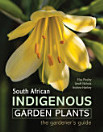The Language of Plants: Science, Philosophy, Literature
About this ebook
Viewing plants as sophisticated information-processing organisms with complex communication strategies (they can sense and respond to environmental cues and play an active role in their own survival and reproduction through chemical languages) radically transforms our notion of plants as unresponsive beings, ready to be instrumentally appropriated. By providing multifaceted understandings of plants, informed by the latest developments in evolutionary ecology, the philosophy of biology, and ecocritical theory, The Language of Plants promotes the freedom of imagination necessary for a new ecological awareness and more sustainable interactions with diverse life forms.
Contributors: Joni Adamson, Arizona State U; Nancy E. Baker, Sarah Lawrence College; Karen L. F. Houle, U of Guelph; Luce Irigaray, Centre National de la Recherche Scientifique, Paris; Erin James, U of Idaho; Richard Karban, U of California at Davis; André Kessler, Cornell U; Isabel Kranz, U of Vienna; Michael Marder, U of the Basque Country (UPV-EHU); Timothy Morton, Rice U; Christian Nansen, U of California at Davis; Robert A. Raguso, Cornell U; Catriona Sandilands, York U.
About the author
Monica Gagliano is research associate professor of evolutionary ecology and research fellow of the Australian Research Council at the University of Western Australia.
John C. Ryan is honorary research fellow in English and cultural studies at the University of Western Australia.
Patrícia Vieira is associate professor of Spanish and Portuguese, comparative literature, and film and media studies and director of the comparative literature program at Georgetown University.







